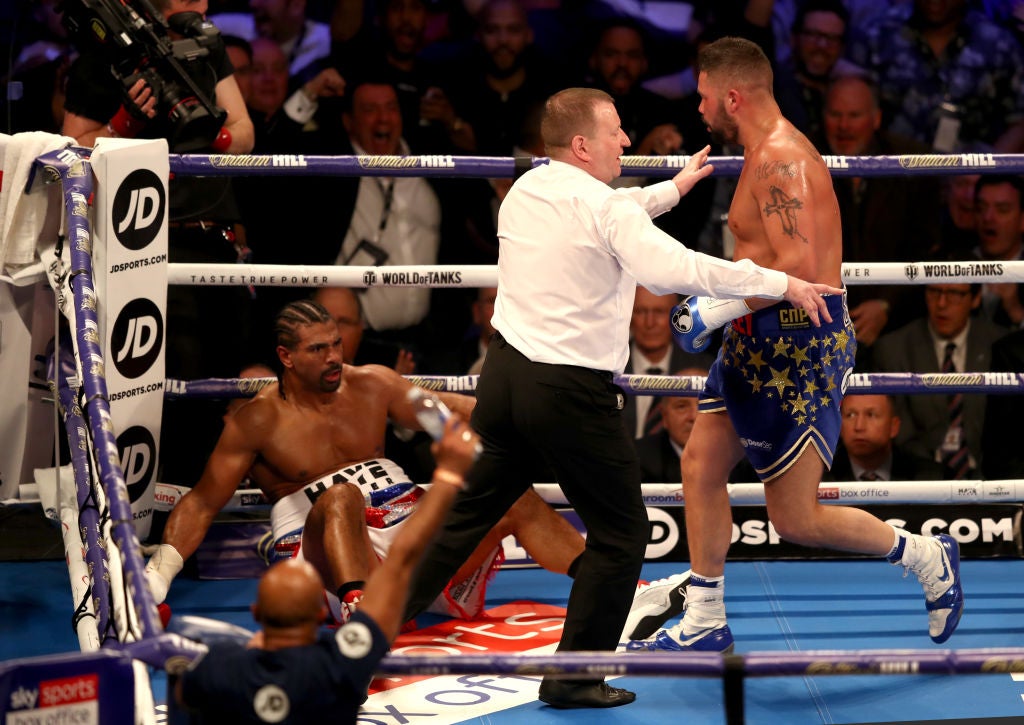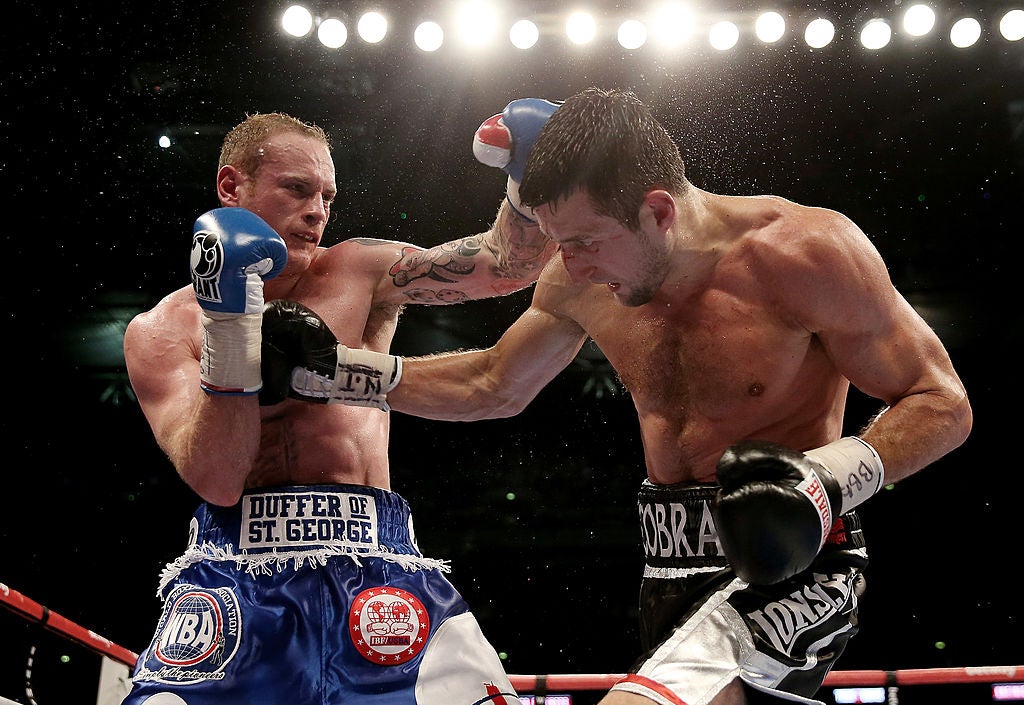The Independent's journalism is supported by our readers. When you purchase through links on our site, we may earn commission.
The ultimate grudge match: How Chris Eubank Jr and Conor Benn continue a family tradition of sacrifice and hate
As Eubank Jr and Benn get ready to settle their dispute, decades on from their fathers twice facing off in the ring, Steve Bunce explains why genuine animosity between fighters captures the attention like nothing else


It is rare in the boxing business for two fighters to hate each other after a fight. Rare, but it does happen, and it is nasty when it happens. On Saturday, Conor Benn and Chris Eubank Jr will fight for family pride, millions of pounds, and to try to settle a personal score. It is doubtful that the end of the fight will be the end of the hostilities.
Their fathers still circle each other whenever they are close; if Michael Watson is present, the tension will ease. The dads met in 1990 and 1993. “I have no idea why we never had a third fight – I wanted to, I still hate him,” Benn said in 1997.
Benn and Eubank were opposites on both sides of the ropes, but that is not the reason that hate drove their fights, pushed the pair of them to bloody wrecks each time they faced each other. It was far more than just being opposites.
Eubank annoyed Benn long before they started having their clashes at conferences and ringside. Benn felt that Eubank had done nothing to justify the hype, and he was right; Eubank talked his way into the first fight and Benn always resented that. Eubank beating Benn only added to the malice and it was not just about losing; there was certainly no hate in 1990 towards Watson, who had knocked out Benn in 1989.
Eubank and Benn clashed, their personalities were different; they will never have a civil relationship. If they drove a bus, they would fight in the canteen every day. The sons have inherited the same hate for each other, even if they are reluctant at times to use the word and the language.
Tony Bellew was in a lot of fights with an unpleasant backstory. Bellew’s two brawls with David Haye were ugly; Haye was dismissive of Bellew’s abilities and achievements and Bellew was angry. Bellew made it personal. It was genuine at the time and perfectly fit the story of both fights; Haye lost the first, found some excuses, angered Bellew even more and then he lost the second. I sensed, on the night at ringside, the hate lifting like a cloud in the closing moments of their second fight. There was an embrace; some fights never have that and never will. It is odd at the final bell when two boxers don’t even look over at each other. That is a level of animosity that you must respect.

Bellew had also had a far more personal boxing affair with Nathan Cleverly; it was not as high-profile as the fall-out with Haye, but it was very unpleasant. Bellew lost the first and it was close. He was furious. He had to wait three years for revenge and that was also close. It is one of the secret grudge fights in our history. A fight that lingers on and on inside the boxers.
Carl Froch and George Groves had that feeling long before their first bell back in 2013. The pair had clashed at the conferences, glared at the weigh-in and fought a first round in Manchester that will never be forgotten; Groves dropped Froch heavily, there was bedlam, but Froch survived and won in the ninth round. Groves complained bitterly about the stoppage. It set the full agenda for their complicated relationship to this day.
Groves forced a rematch, Froch was even more dismissive; the hate was simmering. On the night at Wembley Stadium in front of over 80,000 people, Froch won with a single-punch knockout. They were still glaring at each other; they are still the poster boys for angry boxers. In an odd twist, the pair tour and talk about their rivalry, the grudge fight and their hate. I’m still not sure that they like each other. It is an extreme relationship.

Back in 1971, Joe Bugner beat Henry Cooper in a massive British heavyweight title fight. It was front and back page of the newspapers, a controversial decision and right up until the end of Cooper’s life in 2011, the pair never properly spoke. The fight led to a life of bitterness and anger towards Bugner and, perhaps, Cooper’s history was tarnished by his reaction to the 15 torrid rounds. “He still hates me,” Bugner said in 2008 when they met briefly for a BBC interview – it was possibly the one and only time they sat together to discuss the 1971 fight. Cooper did not speak to the referee on the night, Harry Gibbs, ever again. Not one word... that is a boxing vendetta.
On Saturday, Eubank and Benn will continue a family tradition on both sides of the ropes of sacrifice and hate. It will be personal and bad-tempered as a guarantee – some fighters will simply never like each other. Respect might be there, but no friendship or brotherhood.
And to be honest, that is fine.


-and-Conor-Benn-(R)-interact-during-the-face-off.jpeg?quality=75&width=230&auto=webp)
Join our commenting forum
Join thought-provoking conversations, follow other Independent readers and see their replies
Comments